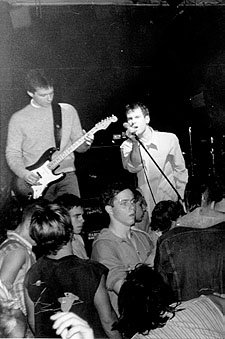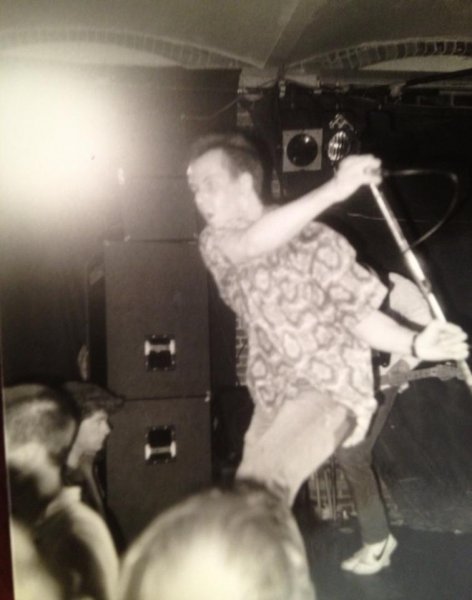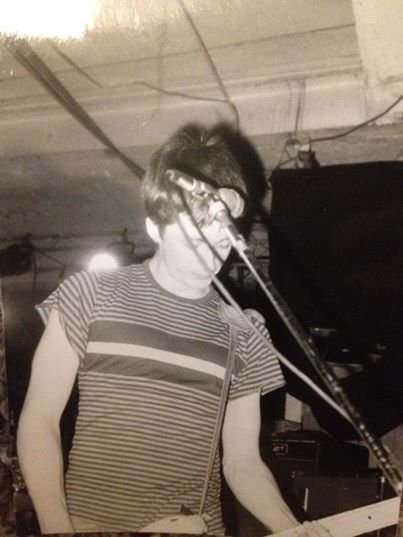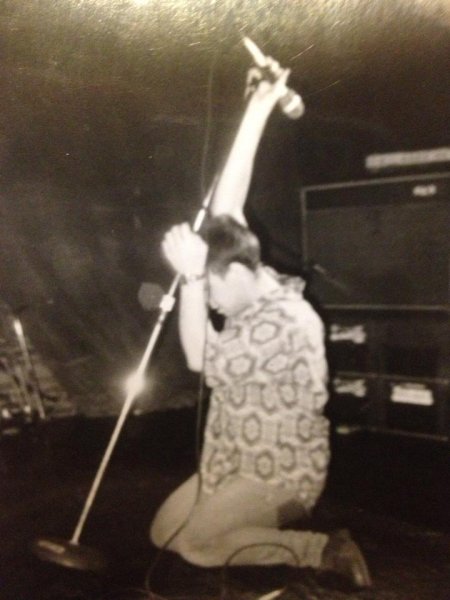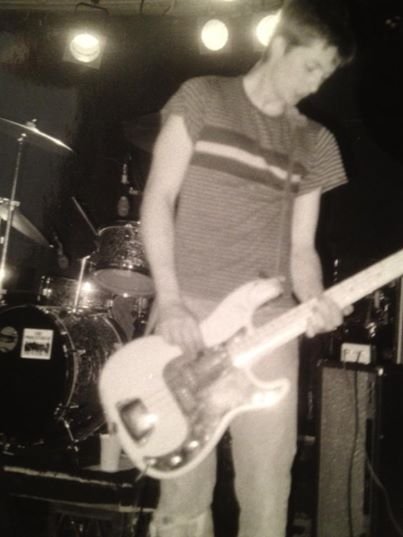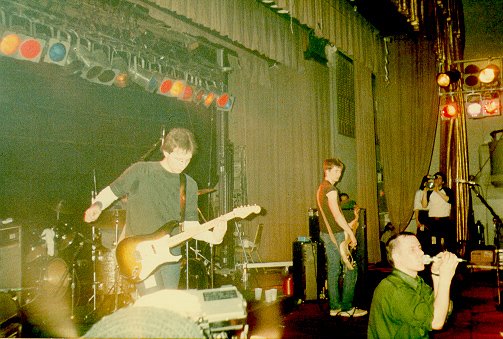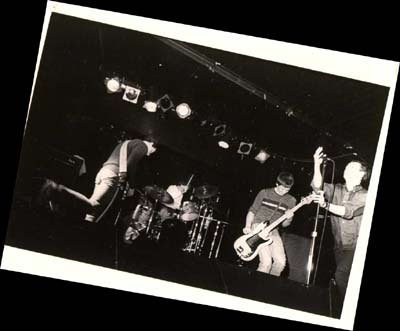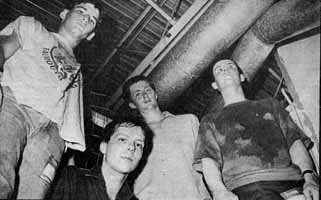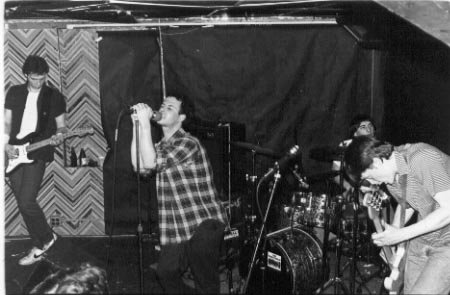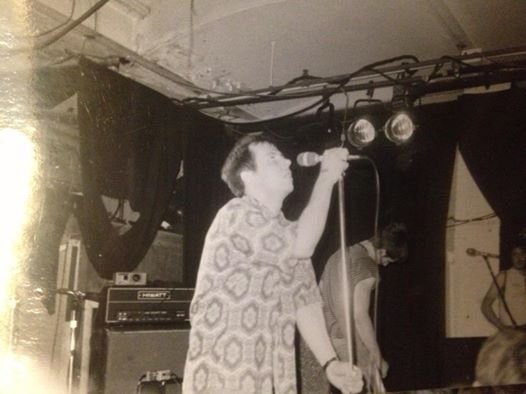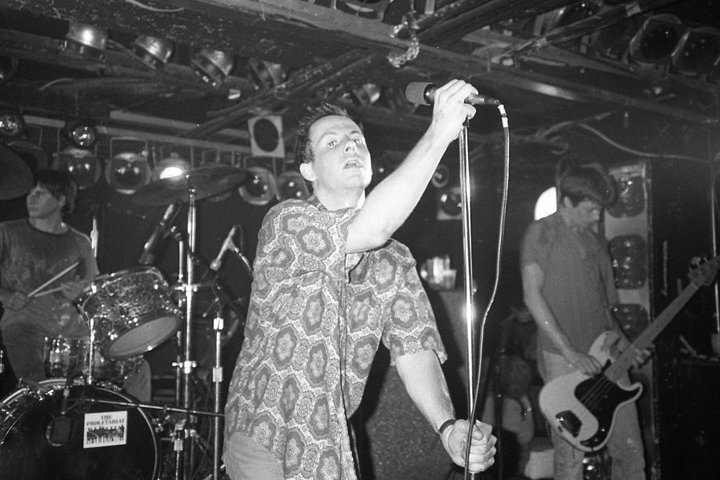The Proletariat
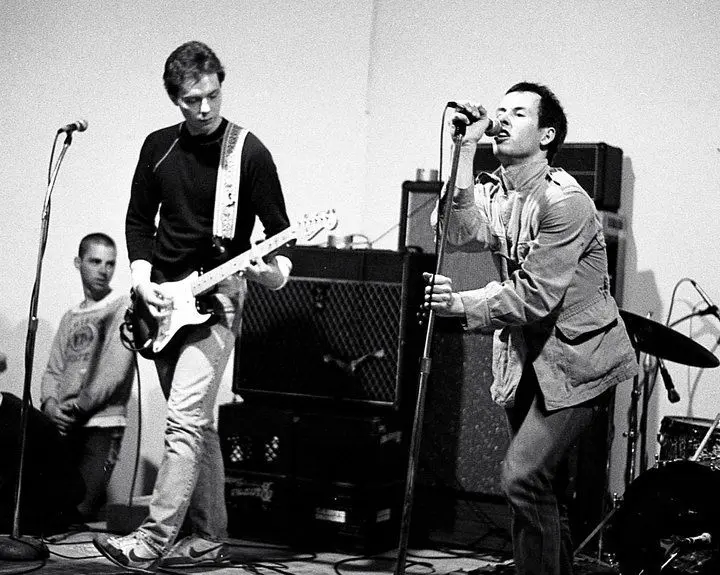
“People are always telling us to smile onstage,” said Peter Bevilacqua, bassist for The Proletariat. “But we’re very serious. We believe so much in what we’re doing.” Why smile when it’s more fun to sneer?
Dogmatic lyrics, belligerent vocals, shadowy, guitar-dominated soundscapes, a heavy de-emphasis on image – Fall River, Massachusetts-based The Proletariat occupied that ever-exhilarating, cramped space between punk and postpunk. Deranged with frustration and uncertainty yet always pointed and intelligent, the band’s music – plus their “no outfits or haircuts or slogans” aesthetic, as a 1982 Boston Rock profile put it – struck a resounding chord with the hardcore crowd in Boston during the early ‘80s. During their roughly four years together, they played 115 live shows, according to their website, and appeared on bills with the likes of Black Flag, Bad Brains, Flipper, Minor Threat, Richard Hell and The Voidoids, Stiff Little Fingers and Hüsker Du, among others.
FORMATION, EARLY APPEARANCES, DISTORTION, SOMA HOLIDAY
Vocalist Richard Brown, guitarist Frank Michaels and Bevilacqua were all friends from their days at Apponequet High School in Lakeville, Massachusetts, and drummer Tom McKnight was brought into the fold through a cousin of Bevilacqua’s. The band began practicing in the fall of 1980 before landing its first gig the following summer at the Lafayette Club in Taunton. Their obscene cover of the Sex Pistols’ “Anarchy in the U.K.” reportedly led to the owner of the Lafayette banning all live music. A concert at Roger Williams Park in Providence was equally notorious; the crowd began hurling expletives at The Proletariat after just three songs.
With plenty of buzz now surrounding them, the group issued a seven-song demo named Distortion. This was followed by inclusion on Modern Method’s 1982 landmark punk compilation This is Boston, Not L.A. and in 1983 the band cut their first album, Soma Holiday (named after the drug-fueled escapes from modern life in Aldous Huxley’s Brave New World). The disc bristled with knife-sharp guitar riffs, frenzied tempo, and caustic lyrics in songs like “Purge” (“Your right to freedom of speech / Depends on what you have to say”).
INDIFFERENCE, LINEUP CHANGE, DISBANDING, CHURN
The group’s second album, Indifference – a title inspired by David Henry’s photography of Boston’s homeless – came in 1985. The sense of urgency was heightened, the threat of violence more pointed. On songs like “The Guns Are Winning” and “Homeland,” the band tackled sociopolitical issues that remain relevant today. “We write about things that make us angry,” Michaels once said.
By the time of Indifference’s release, the original lineup had disintegrated, with Michaels and McKnight having left. Laurel Bowman and Steve Welch were brought on board to sing and play drums, but after only two shows with the new pair, the group disbanded. In 1995, Brown, Michaels and Bevilacqua formed Churn; the band recorded a five-song EP, Heated Couplings in the Sun, before breaking up in ’97.
(by Ryan Foley)

